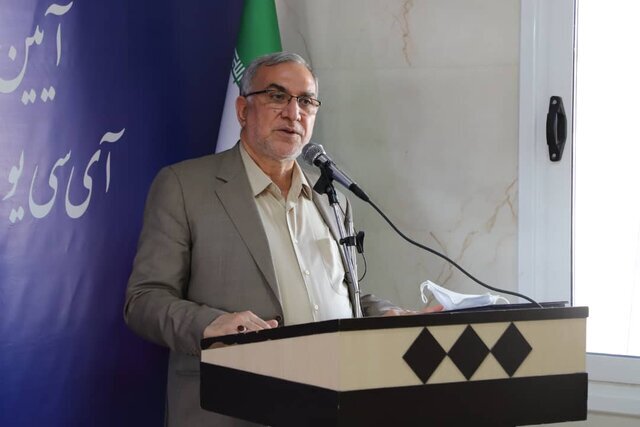Despite sanctions, Iran has the strongest health system: minister

TEHRAN – Despite the sanctions that have existed since the beginning of the Islamic Revolution until today to prevent the country from progressing, Iran has the strongest health system in the region, Health Minister Bahram Einollahi has stated.
This success is the result of the resistance of people, as well as the round-the-clock efforts of scientists and innovative youth, he noted.
However, before the Islamic Revolution, some of the physicians were dispatched from India and Pakistan, and there was no significant progress in the field of medicine in the country, he stated.
Also, people used to go to other countries for treatment, but today we have achieved so much in the field of health that many patients in the region travel to Iran for treatment, he highlighted.
This success is the result of the resistance of people, as well as the round-the-clock efforts of scientists and innovative youth.Despite the cowardly sanctions, especially in the field of medical equipment and medicine, our country was one of the successful nations in controlling the COVID-19 pandemic, and now that other countries are experiencing high rates of daily coronavirus mortality, including the United States, Iran’s daily covid deaths declined to single-digit numbers or zero.
Elsewhere in his remarks, he said one of the most important priorities of the Ministry of Health is "deprivation eradication" to ensure the health of people in all parts of the country.
Rise in pharmaceuticals, medical productions
The import of pharmaceuticals has declined in Iran by 91 percent, which shows the capability of the country’s pharmaceutical industry, Mohammad Reza Shanehsaz, former head of the Food and Drug Administration, said last October.
Today, all medicine used in the treatment of coronavirus are produced by domestic manufacturers, and if we wanted to import all the items, there would be a high exchange rate, he further stated, emphasizing that COVID-19 vaccine development indicates the pharmaceutical industry’s capability.
In 2018, 67 percent of the active pharmaceutical ingredients (APIs) used to produce drugs in Iran were made locally.
A total of 227 knowledge-based firms are supplying medical equipment for health centers across the country, according to the Vice Presidency for Science and Technology.
Knowledge-based companies can produce any medicine effective in countering coronavirus or approved by the scientific committee within a week to 10 days, Sourena Sattari, vice president for science and technology, said.
In January 2021, the Headquarters for Executing the Order of the Imam unveiled three raw pharmaceuticals and a new anti-coronavirus drug called Ivermectin, which had been previously imported.
Also, Iran is capable of production of biopharmaceuticals, which has so far reached 28 items, making Iran the third leading country in Asia.
Iran’s health sector and development
Based on innovative indicators of health technology development in 2021, Iran was ranked 60th among 132 countries, which shows an improvement of 60 steps compared to 2014, the deputy health minister for research and technology, has announced.
A total of 1,670 knowledge-based firms are operating in the health sector, ISNA quoted Younes Panahi as saying.
He added that there are 13 science and technology parks and 95 technology growth centers in the field of health, while 343 technological products have so far been licensed, and 335 inventions in medical sciences have been patented.
The health technology development is evaluated by the Global Innovation Index with seven indicators, including institutional structure, human capital and research, infrastructure, market and business complexity, technological knowledge, and creativity, he explained.
In June 2021, Ahmed al-Mandhari, the World Health Organization director for Eastern Mediterranean Region, said the Islamic Republic of Iran is a role model for primary health care.
For the past four decades, its PHC network has aimed to ensure that people have timely access to affordable, accessible, and acceptable essential health services, he explained.
“At the outset of the COVID-19 epidemic, the Islamic Republic of Iran made its primary health care system a core part of its national response. This PHC infrastructure allowed systematic outreach activities for early case detection, contact tracing, and triage for hospital referral (if necessary) by community health workers.
FB/MG
